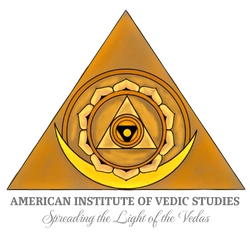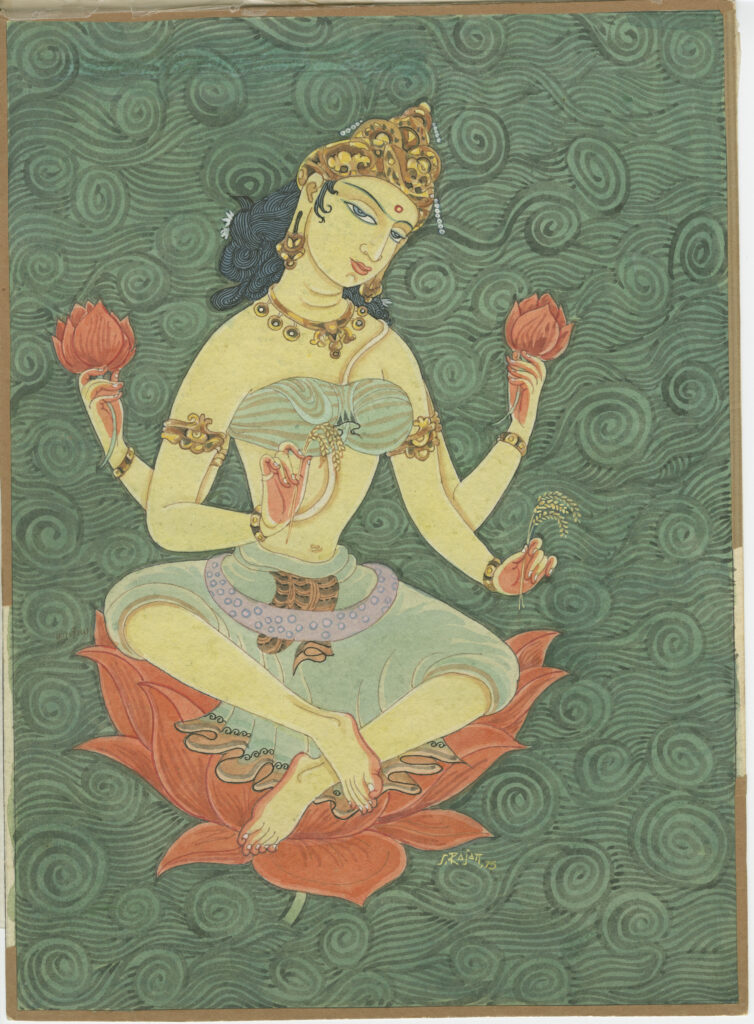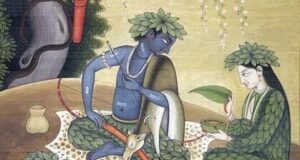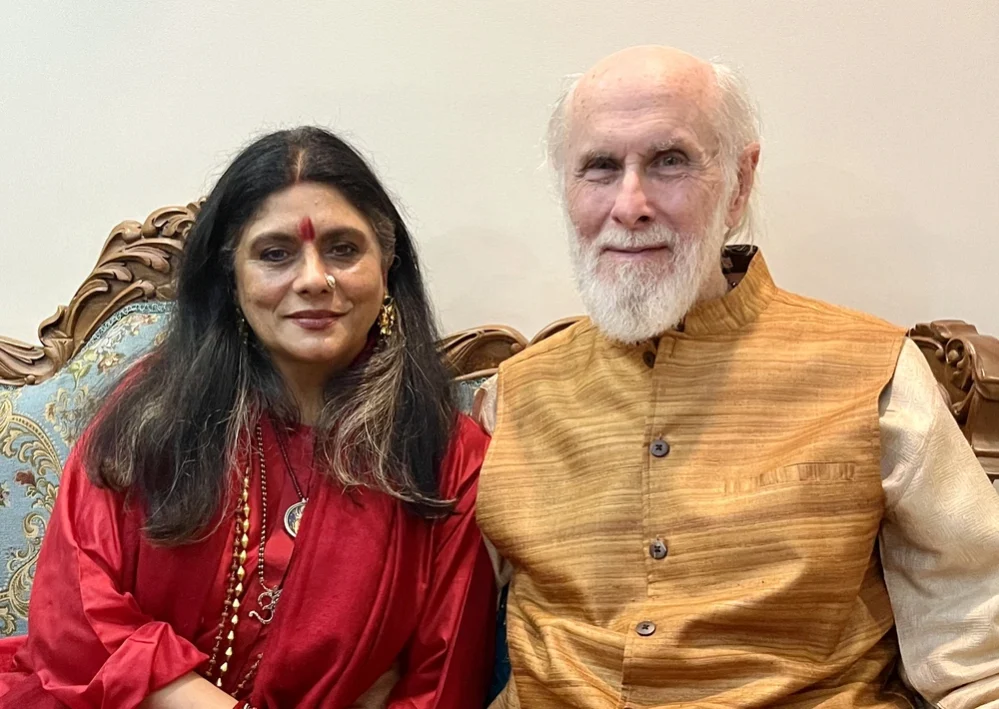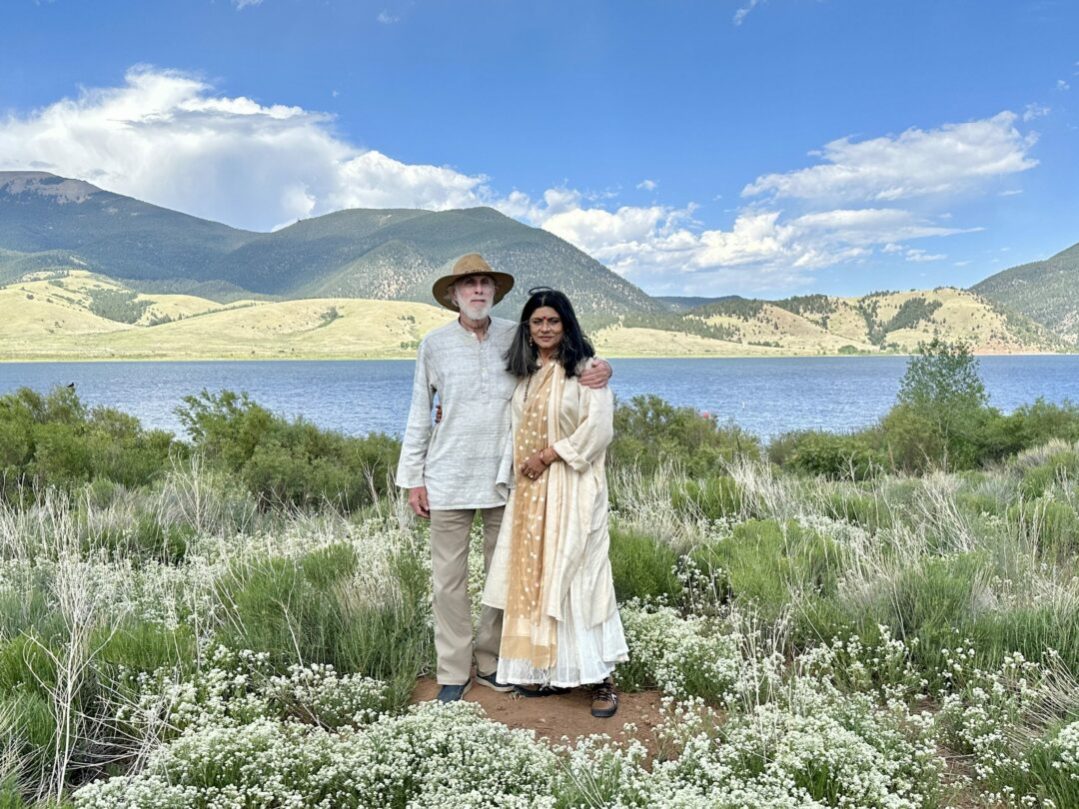Santosha, the yogic state of contentment, is not ordinary contentment, such as being happy personally with who are, what we own, or having our desires fulfilled. It is not mere complacency or being satisfied with outward enjoyments.
Santosha is the contentment and peace that arises from dwelling in our true nature, the inner Self and Seer, Atman or Purusha, no longer dependent upon anything from the external world to fulfill us. Santosha is an inner satiation with our own Being.
Santosha is the last of the Yamas and Niyamas, the principles and practices of yogic and sattvic living, and represents their culmination or fulfillment.
Nature of Santosha
Santosha is inherent in the Purusha, our true Self whose nature is Ananda, peace and bliss beyond thought. It requires affirming our inner Self as eternal, infinite, complete, and all-pervading. Santosha is connected to Purnam, the state of fullness that is the nature of Brahman, the Cosmic Reality, which holds everything manifest or unmanifest as its own Self-effulgence.
How then do we cultivate Santosha? It begins with changes of attitudes and reactions in life. We must give up all petty mindedness, all mere gossip or worry, all sense of expectation, frustration or demand from others. If we are content in our true Self, then we no longer need to pressure others to do what we want, or manipulate the outer world for our personal happiness. We become givers of happiness, not seekers after it from someone else.
Santosha and Samadhi
Santosha prepares the mind for Samadhi, the unitary state of Consciousness that is the goal of Yoga and the basis for Self-realization. Samadhi is not simply a trance or state of ecstasy, but the ultimate state of peace and contentment.
For the composure of Samadhi to be possible, we must let go of attachment to negative emotions. Often, we are more attached to our negative emotions, particularly anger, jealousy and grief, than to our own positive joy and happiness. We must be willing to let go of the negativities of the mind in order transcend them. Cultivating the contentment of our inner Self allows us to do this.
Santosha is an enduring balance of awareness, in which we are no longer caught in the dualistic movements of the mind as attraction and repulsion. One who has this inner Santosha can never be intimidated or disturbed by what may happen externally in this uncertain world.
Santosha is best represented by the serenity of Shiva Mahadeva, the supreme Yogi, who blesses us with silence, steady vision, calm and contentment beyond all thought. Shiva has the Santosha of the universal mountain of Consciousness.
Santosha and Yoga Practices
Every aspect of Yoga practice, not just Yamas and Niyamas, is designed to promote Santosha and requires it for its full accomplishment.
The right practice of Asana should lead us to a sense of contentment, balance and harmony in our physical state and posture, an organic and metabolic equilibrium, a sense of ease and relaxation.
Pranayama should lead us to a state of contentment in our deeper vital energy, with our prana and breath, deep, balanced, and peaceful, rooted in the eternal lifeforce of our inner Self, not simply in the air that we breathe.
Pratyahara is not simply control of the senses, but no longer requiring outer sensory pleasures to make us happy. If we can turn our senses within, we can learn to see the world as a manifestation of the light of Consciousness. Contentment draws in yogic sensory impressions into us, both from the world of nature and our own inner senses like the third eye.
Dharana is a state of steady attention and concentrated one-pointed awareness. This is only possible if we have an inner state of contentment to sustain it. Otherwise, our minds will be disturbed and distracted. Dharana should lead us to a state of contentment in holding our attention.
Dhyana is the steady and expansive meditative state of Self-awareness, in which we are content in the Being of all, no longer looking outward to make the mind happy or peaceful.
Samadhi leads us to the ultimate contentment in the Ananda of unitary Consciousness.
Bhakti Yoga, the Yoga of Devotion, has its own special state of contentment resting in Divine love parama prema and the bliss of devotion.
Jnana Yoga, the Yoga of Knowledge, draws us into a transcendent contentment from knowledge of our inner Self and realization of the ultimate truth beyond all outer limitations.
Karma Yoga, the Yoga of action, takes us to an inner contentment in all that we do, making our actions become an offering to the Divine within, not a mere personal striving.
Hatha Yoga is based upon the contentment gained through practices of asana, pranayama, mudra, and bandha, leading us by degrees to the harmony of all our energies.
Raja Yoga is based upon cultivating the attitude of contentment within us and around us. Santosha is the ultimate attitude of Raja Yoga that balances and integrates every aspect of our being, outwardly and inwardly.
The supreme contentment in Yoga is resting in the bliss of the thousand petal lotus of the head, our transcendent awareness beyond the physical body from which the nectar of ananda flows.
In Ayurveda, deep contentment arises through developing Tarpak Kapha, the subtype of Kapha giving mental and emotional contentment and harmony in brain and nerve function. Contentment brings about healing and wellness to both body and mind.
Yet inner contentment or Santosha is not something we can pursue or run after, which process itself breeds discontent. True Santosha is recognizing the contentment inherent in Sat-chit-ananda, Being-Consciousness-Bliss Absolute which we when we let go of desire. You abide in boundless of Santosha when you are true to your inner Self, regardless of what occurs in the world around you.
Dr. David Frawley (Vamadeva Shastri)
